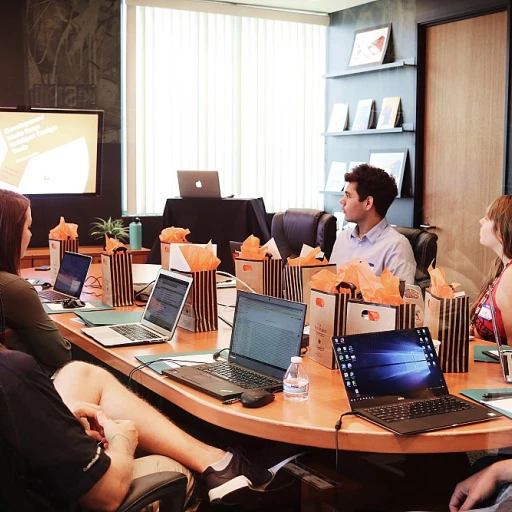
Defining the Sphere of Control in Mentoring
Understanding the Concept of "Sphere of Control"
In the realm of professional mentoring, understanding the "sphere of control" is a foundational concept that can shape the trajectory of guidance and influence a mentor wields. Essentially, the sphere of control encompasses the range of things mentors can directly manage or influence. It acts as the frontline of decision-making, focusing efforts on elements within immediate grasp while recognizing the boundaries where influence wanes. A primary aspect of effective mentoring involves differentiating between what lies within a mentor's circle of control and what extends into the broader sphere of concern. The latter often includes factors that can impact both mentors and mentees but are beyond any immediate change—a separation that embodies the delicate balance between control and external influences. In mentoring, particularly, a metaphorical circle might represent the factors a mentor can change or influence: mentee engagement, the structure of sessions, feedback mechanisms, and goal-setting strategies. The sphere grows healthier when mentors commit time and energy to these areas, leading to a productive mentorship relationship. Another crucial aspect is maintaining mental health within this circle. Effective mentors acknowledge their limits, stepping back when a situation extends into the sphere of concern—a sphere where things might provoke worry, like organizational changes or evolving industry norms, yet cannot be altered directly by personal intervention. Some schools of thought, collating insights from therapy and leadership studies, propose an evidence-based approach. This suggests that mentors should anchor their guidance in verifiable data, blending empathy with practical strategies. The aim is to promote a balanced approach that respects both the mentor’s capacity and the mentee’s autonomy. Understanding these dynamics equips mentors to lead with empathy and informed decision-making, ensuring their influence remains both impactful and appropriately bounded. For further insights into professional mentoring frameworks, consider exploring resources on group norms in professional mentoring.Identifying Your Sphere of Control
Assessing Your Personal Circle of Influence
Identifying your sphere of control is a crucial aspect when engaging in professional mentoring. This involves recognizing the specific areas where you can exert influence, contribute to change, and focus your energy effectively. Understanding this can help in developing leadership qualities and enhancing the relationship with your mentee.
One useful approach to identify your sphere is to use the concept of circles such as the circle of influence and circle of concern. This method can offer a balanced approach to discern the areas within your direct control, where you have influence, and what resides beyond your reach.
- Circle of Control: These are the things directly within your ability to change or manage. By filling this circle with emphasis on issues you can address, such as communication style or task management, you focus on tangible outcomes.
- Circle of Influence: This area encompasses the things that may not be directly under your control, but where you can still have an impact. This includes activities like inspiring others through effective mentorship, embracing leadership roles, or influencing organizational culture.
- Circle of Concern: These are wider societal or organizational concerns that you may not have the power to change. It's vital to recognize which elements fall into this category to avoid futile efforts and maintain mental health. Focusing too much on these can lead to wasted energy and stress.
Understanding your own control sphere is akin to evidence-based therapy where self-awareness plays a pivotal role. It allows you to invest time wisely, make informed decisions, and guide mentees in recognizing their own spheres.
Through this awareness, mentor-mentee interactions become more focused and productive, aligning efforts on shared and feasible goals, all while maintaining a healthy and respectful exchange of ideas. Recognizing these circles can also enhance one's adaptability to the evolving dynamics of international relations or organizational changes.
Strategies to Maximize Influence Within Your Sphere
Maximizing Your Influence: Strategies for Prosperous Mentoring
Understanding the circle of influence and control in professional mentoring is crucial. When you can identify your sphere of control, you begin to see how effectively you can inspire change and provoke productive responses from your mentees. Here are some strategies to bolster your influence within your mentoring sphere:
- Focus on Control and Influence: Direct your energy and attention toward areas of the relationship where you can have a real impact. A balanced approach, concentrating on areas where you can change things, will provide greater gains. Separating the circle of concern from the circle of control is essential. Concentrating your efforts on what you can control will enhance your ability to guide effectively.
- Build Trust through Evidence-Based Practices: Use strategies grounded in evidence-based practices to create a trusting environment. Demonstrating authority through proven methods helps establish credibility with mentees. Exploring international relations principles can provide techniques to balance influence and control within mentoring relationships.
- Leadership and Emotional Intelligence: Strengthen leadership skills to better fill your role as a mentor. Using emotional intelligence helps in compelling decision making, allowing you to better understand your mentees' needs, interests, and health concerns. Focusing on these elements will help in supporting mental health and wellbeing.
- Commitment to Consistent Feedback: Provide regular feedback, which is an essential aspect of maintaining engagement and promoting growth. Constructive feedback helps mentors align their circle of influence with their mentees' sphere of concern, triggering a symbiotic map for success.
- Utilize Time and Resources Efficiently: Invest your time wisely in activities and discussions that yield the most impact. Ensuring your work with mentees remains time-balanced and focused helps in sustaining momentum and minimizing burnout.
For further insights, you can explore effective strategies for training new hires, which align closely with maximizing influence in mentoring. These strategies uphold a cohesive circle of control where mentors can foster genuine growth and transformation in their mentees, leading to fruitful and rewarding mentoring experiences.
Recognizing the Limits: When to Step Back
Knowing When to Let Go
In the realm of professional mentoring, understanding the boundaries of your sphere of control is crucial. While it's natural to want to help your mentees as much as possible, it's equally important to recognize when your influence should be limited. This balanced approach not only protects your mental health but also empowers your mentees to take charge of their own development.
One of the key aspects of effective mentoring is recognizing that not everything falls within your control. There are things you can change and others that remain outside your sphere of influence. By focusing your energy on areas where you can truly make a difference, you avoid unnecessary stress and burnout. This is where the concept of the circle of concern versus the circle of control becomes relevant. The circle of concern includes everything you care about, while the circle of control is limited to what you can directly influence.
Setting Boundaries for Healthy Mentoring
Setting clear boundaries is essential for maintaining a healthy mentoring relationship. This involves being transparent about what you can and cannot do for your mentee. Encourage them to take ownership of their journey, which not only fosters independence but also helps them expand their own sphere of control. This approach aligns with evidence-based practices in leadership and therapy, where the focus is on empowering individuals to make their own decisions.
It's also important to recognize when to step back and allow your mentee to navigate challenges on their own. This doesn't mean abandoning them; rather, it's about giving them the space to apply what they've learned and grow from their experiences. By doing so, you help them build resilience and confidence, which are crucial for long-term success.
Balancing Influence and Autonomy
Ultimately, the goal of professional mentoring is to guide without controlling. By understanding the limits of your influence, you create an environment where your mentee can thrive. This balanced approach not only enhances your effectiveness as a mentor but also contributes to the overall health of the mentoring relationship. Remember, your role is to support and guide, not to dictate or control every aspect of your mentee's development.
Empowering Mentees: Expanding Their Sphere of Control
Encouraging Broader Influence and Control
In the realm of mentoring, a critical component of the mentor-mentee relationship is helping the mentee expand their own sphere of control and influence. This not only empowers them but also serves to build their self-efficacy and leadership potential. Here's how you can guide your mentee in this process:
- Focus on Strengths: Encourage your mentees to identify and leverage their strengths as foundational elements within their sphere of influence. This involves recognizing capabilities that they can control and that can affect changes in their immediate environment.
- Energy Management: Emphasize the importance of mental health and self-care. Mentors can help mentees understand the value of investing time and energy in areas where they can make a meaningful impact, without dissipating efforts on concerns beyond their control.
- Guidance in Prioritization: Assist mentees in identifying which things within their sphere require immediate focus and which can be strategically managed over time. This involves a balanced approach to decision making and concerns, ensuring effective control influence.
- Leadership and Accountability: Empower mentees to take ownership of projects and initiatives within their circle of influence. This will help them realize the positive effects they can have by exerting control over the areas they can change.
- Developing Emotional Intelligence: Facilitate discussions around international relations and how emotions interplay with communication and influence. Enhance their understanding of how empathy and awareness can expand their sphere concern.
By implementing these strategies, mentors can progressively expand a mentee's circle of control, encouraging them to fill roles that align with their interests and develop a command over their spheres of influence. Evidence-based approaches and continuous feedback are pivotal in this developmental journey.
Case Studies: Real-World Applications
Insights Through Practical Cases
Delving into real-world applications of the sphere of control in professional mentoring offers invaluable lessons. These examples demonstrate the dynamic interplay of influence and control as mentors and mentees strive for personal and professional growth. The focus on these spheres is fundamental to understanding both change and stability within professional relationships.
Case Study 1: Navigating Health and Energy Management
One mentor, deeply concerned with mental health, prioritized helping their mentee manage their energy and focus on aspects they could control. They worked together to identify external stressors from the sphere of concern and isolate actions within the circle of control. This resulted in improved decision making and a balanced approach to personal and professional challenges, eventually leading the mentee to better mental health outcomes.
Case Study 2: Strategic Career Development
In another instance, a mentor guided their mentee in understanding international relations intricacies. By focusing on spheres they could influence, such as networking and skill development, the mentee was able to enhance their circle of influence. Not only did this align with their career interests, but it also improved their capacity to make evidence-based decisions, maximizing their leadership potential in their work environment.
Case Study 3: Expanding Leadership Capabilities
Another scenario highlighted the expansion of a mentee's influence sphere. Here, the mentor concentrated efforts on leadership development within the mentee's department. By identifying areas of change and effectively filling skill gaps, the mentee expanded their control influence, resulting in significant improvements in team dynamics and workplace culture.
These case studies underscore the practical application of the sphere of control theory in mentoring relationships. They affirm the importance of recognizing limits and strategically focusing on factors within the control sphere, while understanding the broader circle of concern. This balanced approach helps mentors and mentees optimize their energy and effort effectively for meaningful professional development.













